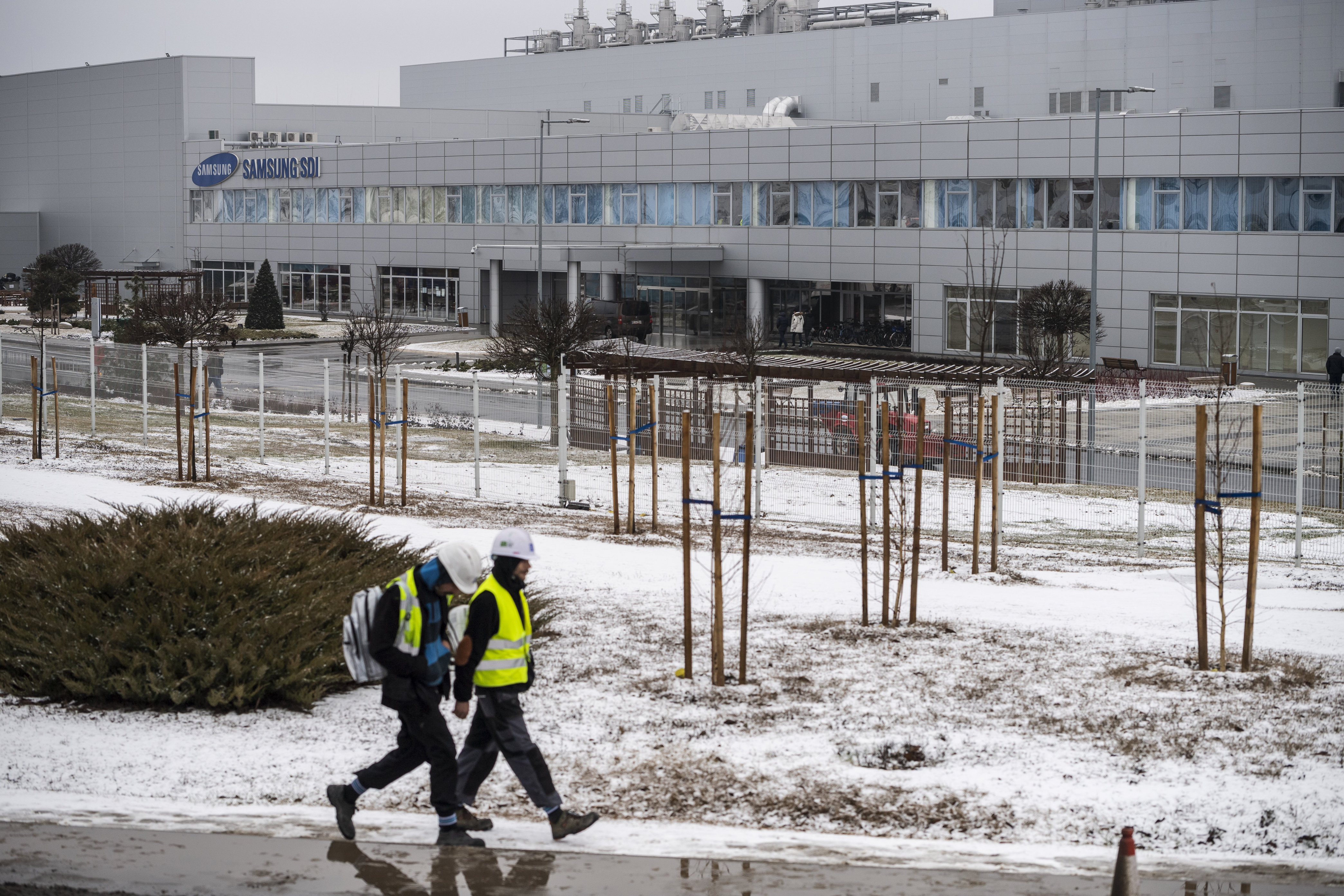Orbán predicts pandemic will peak by May 3 as thousands of hospital beds remain empty
- Stay updated on the latest news from Hungary by signing up for the free InsightHungary newsletter:
In a Facebook video on Sunday, Viktor Orbán declared that the coronavirus pandemic is expected to peak in Hungary by May 3, and in a radio interview the next day, the Prime Minister said that Hungary would reach "full self-defense capacity" by that date, with enough doctors, nurses, hospital beds and ventilators available to treat all patients if the virus were to begin spreading rapidly. After May 3, he said, he would announce a plan for how to gradually return to normalcy.
While Orbán and other government officials have reiterated May 3 as the date when experts expect the virus to peak, no information has been given on what data is being used to draw that conclusion. On Tuesday, advisor to the Ministry of Human Resources Lajos Kollár said that the ministry had "developed a model which simulates what we can expect during the epidemic. Based on this, they've been able to forecast, nearly to the day, the number of daily infections so far." (The ministry did not respond to 444's questions on what models it was using to make its predictions).
Kollár also told Magyar Nemzet in an interview published Thursday that the pandemic would peak "in the first or second week of May, which means that the situation can slowly begin to consolidate and we hope our normal lives can resume by the middle of summer."
These optimistic projections appear to contradict earlier efforts by the government to radically increase hospital capacity. As we reported last week, the government ordered 60% of bed capacity in state hospitals (roughly 36,000 beds) to be cleared for coronavirus patients, which resulted in many non-corona patients being relocated or sent home. Orbán described the government's approach to pandemic response as "hoping for the best, preparing for the worst," and predicted that 5,000 ventilators will be available by May 3, after which the number will be increased to 8,000 following further shipments from China.
However, these figures exceed what the modelling suggests would be necessary by orders of magnitude: in the past week, the number of hospitalized coronavirus patients has remained relatively stable, fluctuating between 729 and 850 patients on any given day. In the same period, those patients requiring ventilators hovered around 60. When compared with the 36,000 hospital beds being set aside for coronavirus patients, and the 8,000 ventilators Orbán has said will be available, these numbers indicate an extraordinary level of caution.
The following graphs show the number of coronavirus patients in hospital over the past eight days, and the number of patients on ventilators:
Orbán has suggested that a dramatic rise in cases could come from retirement homes: the virus has appeared in 19 such homes so far, and the highest number of new daily cases (210) was registered on April 10, when dozens of residents of the Pesti út retirement home in Budapest tested positive. "There are more than 1,000 retirement homes in Hungary, and if only ten people from each home are infected and require hospitalization, that's 10,000 people," Orbán said.
According to publicly available modelling, the May 3 projection seems realistic. According to modelling by the Institute for Health Metrics and Evaluation (funded by Bill and Melinda Gates), the number of daily coronavirus deaths in Hungary peaked on April 19, when there were 17 deaths. The model predicts that the daily death rate will begin to decrease, and that no further deaths are expected after May 8.
The peak of the epidemic "will drag on for a while, and there will be a lot of patients in May", János Szlávik, head of the Infectious Diseases Department at South Pest Central Hospital told state television on Monday. Szlávik said he hopes the pandemic will let up in June, but that it is questionable to what extent it will return in the fall. He added that he hopes an effective vaccine will be available no later than next spring.
Special economic zone created in Göd, strips city of one-third of its budget
Prime Minister Viktor Orbán issued a decree on Friday which allows for the establishment of special economic zones in Hungary, taking control of selected areas from local municipalities and handing it to county assemblies.
Special economic zones (SEZ) are administrative enclaves within a country that are usually established to promote increased trade, job creation and investment through business and trade laws that are different from those in the rest of the country. They are used almost exclusively in developing countries to attract foreign direct investment using reduced or waived corporate taxes, reduced or eliminated customs and duties, and relaxed labor regulations.
The first SEZ established in Hungary by the decree was in the city of Göd, 25 km north of Budapest in Pest county. The zone includes an electric vehicle battery plant owned by South Korean technology firm Samsung SDI, which is currently under expansion and is the largest such factory in central Europe. In justifying the establishment of the SEZ in Göd, Minister of Foreign Affairs and Trade Péter Szijjártó said the €1.5 billion expansion investment is "one of the most important elements of restarting the Hungarian economy".
According to the decree, the ownership rights of certain public areas, parks and roads will be transferred from the municipality to the county government. Crucially, the business taxes paid within the SEZ (those paid by Samsung) will no longer be collected by the municipality of Göd, but will be appropriated by the Pest county assembly. (Fidesz has a majority on all 19 of Hungary's county assemblies.)
Göd mayor Csaba Balogh (Momentum), who was elected in October 2019, said he was not informed in advance of the government's plans to create the SEZ in his city, and only learned of the change when the decree was published in the government's official gazette. He says the loss of tax revenue from Samsung represents at least one-third of the city's budget, which will "jeopardize the performance of crucial tasks in the future". He called it "a death sentence for the city", and suspects that the measure was intended to override previous disputes between the city and Samsung, allowing the plant expansion to go forward without further consultation with the city government and residents.
In an interview with 444, Balogh said he believes the government is planning for the long-term control of the Samsung plant, and does not intend to give it back to the city after the decree expires on June 15.
Contradictions and lack of evidence swirl around deportation of 13 Iranian students
As we reported last week, 13 Iranian university students have been deported from Hungary for allegedly breaking quarantine orders while they were in hospital in early March. The allegations claimed that the students behaved aggressively toward hospital staff and left their rooms without permission while refusing repeated orders to return.
Police initially charged one of those students, a 33-year-old pharmacology student who had lived in Hungary for nine years, of leaving her room at Szent László Hospital and behaving aggressively toward nurses on March 7 at 8:30 pm. The student's legal counsel later informed police that she had arrived at the hospital only after 11 pm that night, and was placed into a room the next morning. (These facts are corroborated by hospital documents.) In response, the police simply amended the charge, changing the time and location of the alleged offenses to align with hospital documentation. In the revised charge, the student was no longer accused of behaving aggressively.
While other foreign citizens were placed in quarantine during those days in early March, deportation orders were issued only to the 13 Iranian students. While coronavirus in Hungary was limited to only a few cases, government communication and pro-government media equated the virus with illegal immigration, and gave particular emphasis to the Iranian students and their alleged misbehavior.
"This is a person whose life has now been ruined by being accused, without any evidence or opportunity for defense, of being a threat to public safety. These unfortunate Iranians have been made an example of," said Gábor Győző, one of the student's lawyers from the Hungarian Helsinki Committee.
Márton Gulyás of the webshow Partizán examined this case in detail. The episode can be viewed with English subtitles below.



